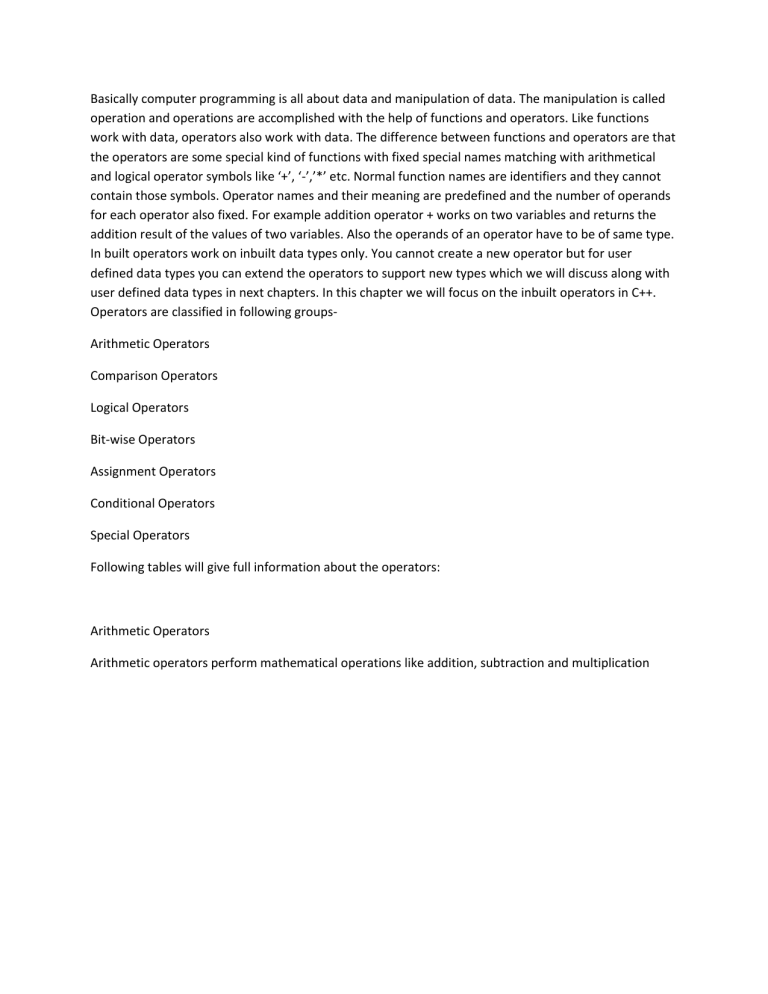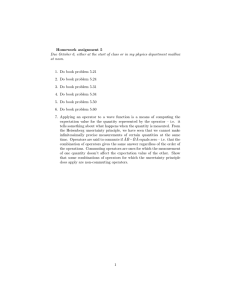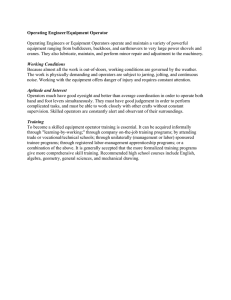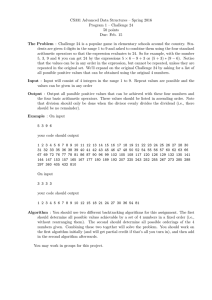
Basically computer programming is all about data and manipulation of data. The manipulation is called operation and operations are accomplished with the help of functions and operators. Like functions work with data, operators also work with data. The difference between functions and operators are that the operators are some special kind of functions with fixed special names matching with arithmetical and logical operator symbols like ‘+’, ‘-’,’*’ etc. Normal function names are identifiers and they cannot contain those symbols. Operator names and their meaning are predefined and the number of operands for each operator also fixed. For example addition operator + works on two variables and returns the addition result of the values of two variables. Also the operands of an operator have to be of same type. In built operators work on inbuilt data types only. You cannot create a new operator but for user defined data types you can extend the operators to support new types which we will discuss along with user defined data types in next chapters. In this chapter we will focus on the inbuilt operators in C++. Operators are classified in following groupsArithmetic Operators Comparison Operators Logical Operators Bit-wise Operators Assignment Operators Conditional Operators Special Operators Following tables will give full information about the operators: Arithmetic Operators Arithmetic operators perform mathematical operations like addition, subtraction and multiplication


